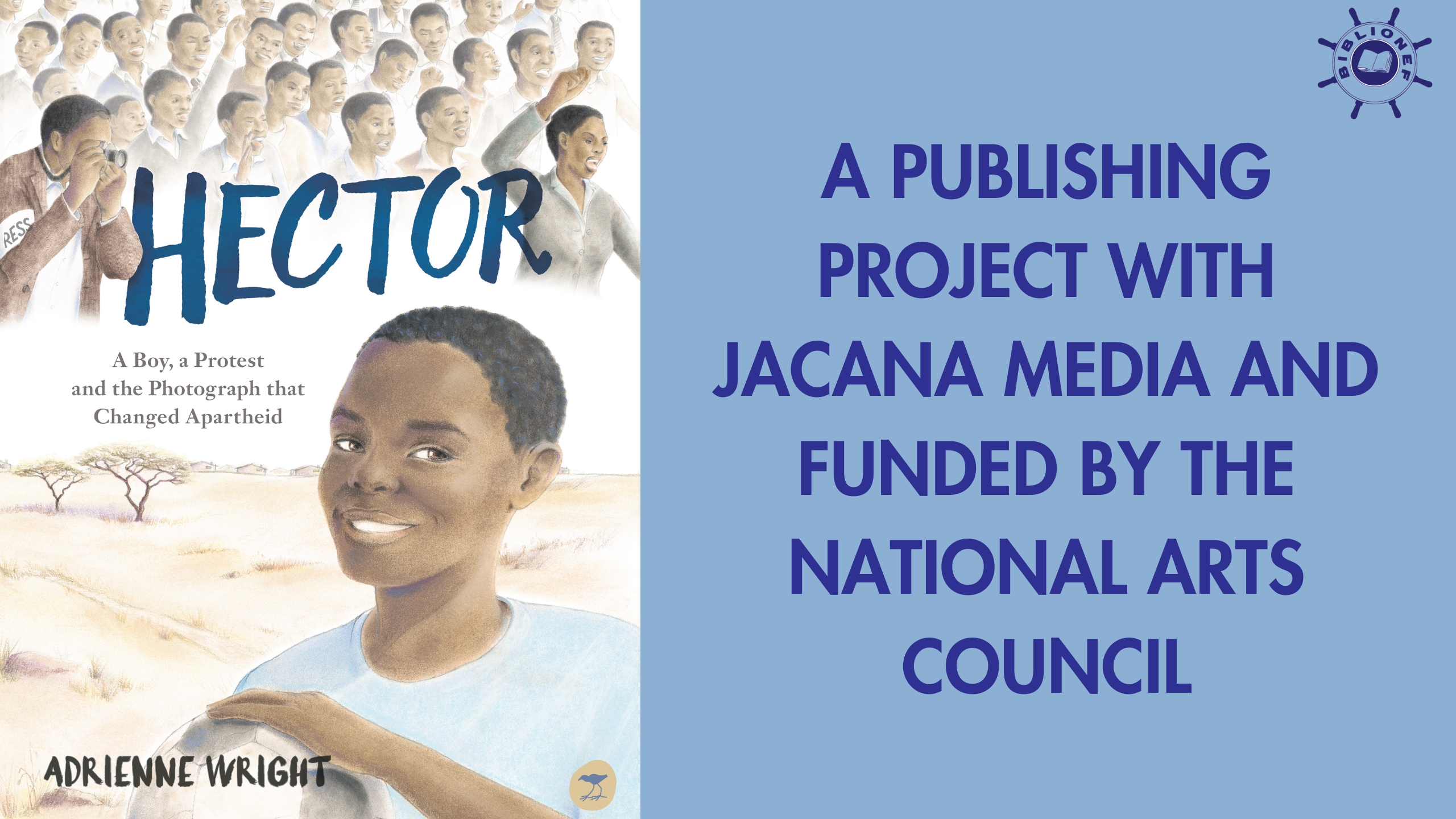We are thrilled to announce our latest publishing project!
With Jacana Media, we commissioned the publishing of Hector: A Boy, a Protest and the Photograph that Changed Apartheid. While we have managed post-Apartheid to give access to schooling to many children, we have not changed much of what children read or sufficiently enriched African languages with the necessary content for African language readers. This is why we are extremely excited to help make this book a reality.
About the Book
On June 16, 1976, Hector Pieterson, an ordinary boy, lost his life after getting caught up in what was supposed to be a peaceful protest. Black South African students were marching against a new law requiring that they be taught half of their subjects in Afrikaans, the language of the white government. The story’s events unfold from the perspectives of Hector, his sister, and the photographer who captured their photo in the chaos. This book can serve as a pertinent tool for adults discussing global history and race relations with children. Its graphic novel style and mixed media art portray the vibrancy and grit of Hector’s daily life and untimely death. With powerful sequential art, debut author-illustrator Adrienne Wright tells Hector Pieterson’s story and recounts the heartbreaking events that woke up the world and helped lead to the end of South Africa’s apartheid.
Why is this book important?
While we have managed post-Apartheid to give access to schooling to many children, we have not changed much of what children read or sufficiently enriched African languages with the necessary content for African language readers. While we recognise the value of fiction in developing the imagination of young readers, we also need to balance it with non-fiction literature that:
- Inspires children’s imagination of what is possible by providing our children with role models who have managed to succeed against all odds.
- Teaches generations of our people who were previously denied this knowledge about these role models.
- Documents South African stories. Not enough research has been done on yesteryear’s black heroes, and we will lose their stories and do our history a disservice if we do not document those stories. These stories are essential because dozens of African-American history and heroes have been pushed down on us, stories of Jesse Owen, Harriet Tubman and others, but we fail to write our own stories and recognise our heroes. The stories will also become part of our archive material and heritage as text that will sell over time and stay on publishers’ lists for a long time.
If young children are not exposed to the history of ordinary people’s activism and the heroes amongst them who contributed to South African society, then we are a country with a false history. Furthermore, we must promote literature in African languages so that this knowledge can be accessible to many children and adults who have a passion for literature and the development of the languages.
Target Audience
The book is written in an accessible and friendly style, primarily for children between the ages of 7 and 12 years. It will play an essential role in promoting reading for enjoyment and can also be easily incorporated into schools’ current curriculum and create meaningful discussions among teachers and learners.
Give Them books. Open up Their World!
We have received 1200 copies of Hector: A Boy, a Protest and the Photograph that Changed Apartheid in isiXhosa, isiZulu, Sepedi, Xitsonga, Afrikaans and English. We have already begun distributing them to our beneficiaries! Once again, thank you to the National Arts Council making this project possible.
We are advocates for not only expanding the variety of books available to our youth in their mother tongue, but also about bringing South African stories to the forefront. You can read more about some of our other publishing projects below:
